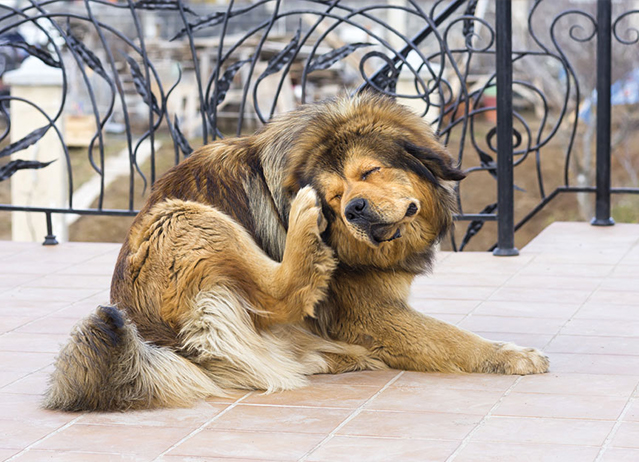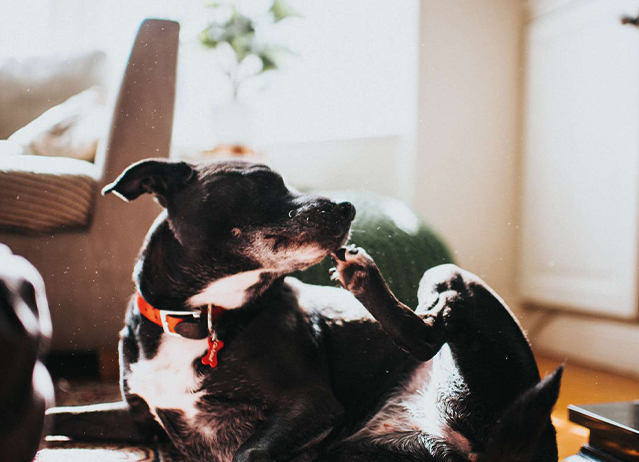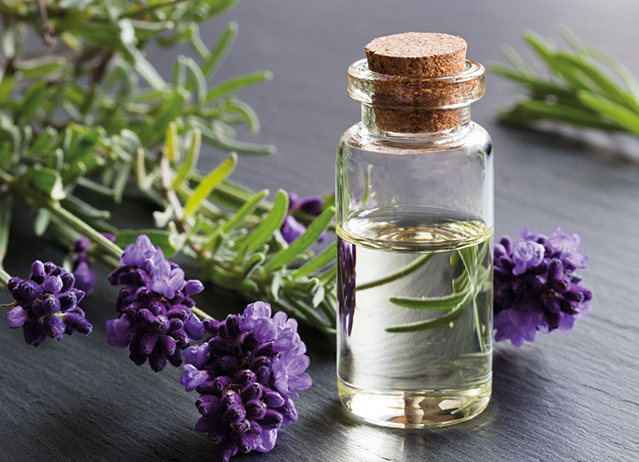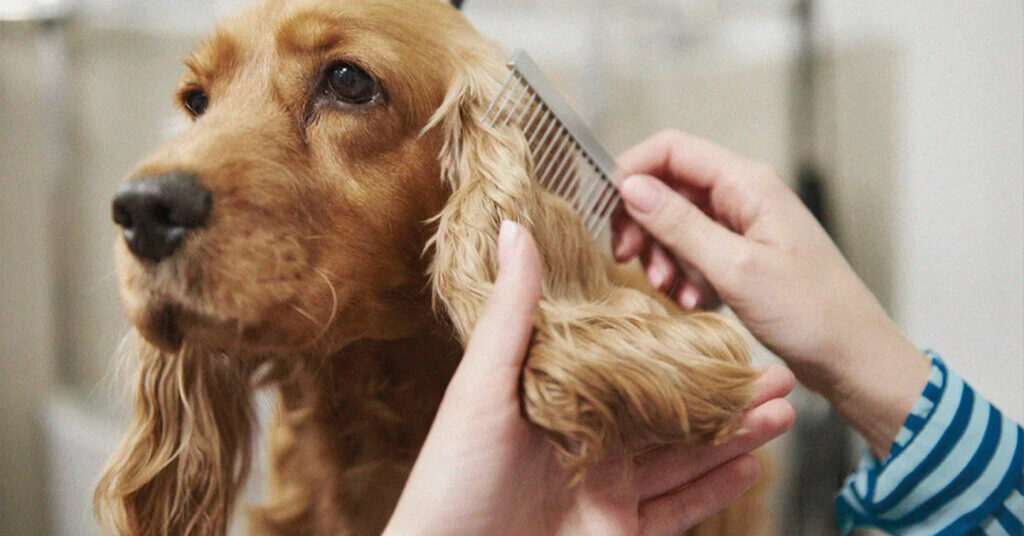Are you fed up with turning to the chemicals? Try these natural flea remedies for dogs instead.
It’s no secret that dogs occasionally get themselves covered in creepy crawlies. While that may not be nice, it is just one of those things about having a canine companion. However, the nasty part is dousing your precious pup in chemical pesticides to eliminate them. Many of these types of products can be potentially harmful to you and your dog. Why not try any of these natural flea remedies for dogs to prevent or get rid of these pests?
What is Fleas?
Fleas are small insects that are very dark brown, feeding on the blood of animals. They are a nuisance to dogs and human beings since they all irritate the skin and are carriers of diseases. If you suspect your dog has fleas, it is necessary to start treatment immediately. This post will share the best natural flea remedies for dogs, including some natural remedies and others found in your local pet store.

What Causes Fleas?
They mainly reside in houses that have pets in them, since they can hitch a ride in the fur of your dog and later lay eggs in the carpet or furniture. They may even ride into your house on clothes or shoes. Fleas can quickly increase their population and grow into a big problem once they get inside your home.
What Are Diseases Caused by Fleas?
Fleas are insects that transmit diseases to dogs and human beings. They cause anemia, tapeworms, and dermatitis in dogs, while in human beings, they harbor typhus fever and plague. If you feel that either you or your dog is infected, it is very crucial to visit a doctor or a veterinary doctor immediately.
Home Remedies To Get Rid of Fleas on Your Dog
If your dog has been scratching and you think it’s flea-related, fear not—there are plenty of flea home remedies for dogs to choose from. From homemade dog collars or flea combs to dips or scrubs, there are the best flea remedies to rid a dog of fleas without using any chemicals at all.
What’s The Deal With Fleas?
Now, why are fleas such a nuisance, you ask? Ha. As if you have to ask. If you have ever had any run-ins with those little buggers, you know.
First off, fleas are notorious for multiplying in crazy ways. They love finding themselves some nice, toasty host. That’s because they like to be warm (and in warmer climates), and your dog makes the perfect place for them to make their 100-day lifespan a tropical paradise.
Yes, they hang around for several dozen days, and once they find a place they like, they stay.
And then they multiply like rabbits. Fleas can lay anywhere between 20 to 40 eggs a day. That’s A DAY, folks. One can see how an invasion may happen in no time flat and how important it is to get hold of things before it get there. Getting rid of a flea infestation is kind of like getting rid of bed bugs or lice– lots of work for what amounts to basically very little pay-off.
On that note, then, why bother with some kind of natural flea remedies? Why not just cut straight to the big, chemical guns?
Now, the problem with those is that they’re toxic. Yes, pretty effective, but toxic—very much so—to you and your family and pets. So if you can get the same job done with more holistic and natural remedies, why not?
And with that, here are six of the most tried-and-natural flea remedies given and recommended by our readers and vets.

1. Apple Cider Vinegar
While this might not kill the fleas, apple cider vinegar can be very effective at repelling them. It is very beneficial flea remedies. You can either rub it into your dog’s fur or put a splash into her water. If using topically, it’s a good idea to do so before each time your dog goes out. Dilute it 50/50 with water. Don’t worry, once it dries, there will be no residual smell of vinegar left. It might even eliminate smells from your pet’s fur. If you feed it to him in water, add about 1 teaspoon of apple cider vinegar to every quart of drinking water.
2. Rosemary Flea Dip
Rosemary is also used as a natural antiseptic and a medicinal herb for hundreds, if not thousands, of years. These are some of the properties that make it so effective against fleas. You can use it to make a natural flea dip by boiling about 2 cups of fresh rosemary in 2 pints of water. Let it steep as it cools and then strain out the rosemary. Now, pour all that water over your dog and let it dry on its own.
3. Brewer’s Yeast
If you want your pooch to become less palatable to the pesky fleas, then brewer’s yeast tablets are what you can add to her chow. For some reason, fleas detest the taste of this substance and avoid getting near dogs that ingest this regularly. For a safe dosage for your four-legged friend, be sure to ask your vet.
4. Citrus Fruits
Citrus fruits are known for their flea-repellent properties. Even better, they’re nontoxic to your dog and are readily available in any supermarket, or maybe even your garden, if you live in a warm climate. Squeeze the juice from an orange or lemon and massage it into your dog’s fur. Not only will it ward off the pesky parasites, but it’ll leave your pup smelling nice, too!
5. Water
It may sound ridiculously basic, as far as flea remedies and herbal flea remedy go, but bathing your dog in water can get rid of most of her fleas. This is because fleas can’t hold on to the shafts of hair like human lice do, so if you give your dog a good bath—in just water, or with a shampoo formulated for dogs if you like—most of her fleas should just fall right off and drown. Good riddance!

6. Lavender
Lavender essential oil is fantastic at getting rid of fleas on dogs. You can use it directly on a dog’s coat, but you should never use it straight because it irritates the skin. It needs to be made into a 2% dilution by mixing it with some kind of neutral carrier oil, like sweet almond oil. This would mean mixing 12 drops of the essential oil into 1 fluid ounce of carrier oil. You can also buy your lavender essential oil that is already diluted.
Fleas in the Backyard
Just because you can’t see them doesn’t mean they’re not there. If your dog has a case of fleas, there’s a very good chance they are lurking somewhere in the darkest, moistest areas of your yard as well. When it comes to outdoor flea remedies, natural methods are always best. Here are the top tips for treating fleas in the backyard.
Keep your Garden Bare
The more bare your garden is, the fewer fleas it will attract to hide in it. Thin or remove overgrown bushes and hedges, and maintain a weedless garden because fleas just love to hide.
Beware of the Damp
Fleas do love humid, dark places and will avoid sunlight as much as possible. Look out over your yard and garden from a flea’s viewpoint: Where would they most likely hide? Remember that under bushes, don’t forget to clean up twigs dead leaves, and extra mulch. Now, let sunlight in your yard do its work as much as possible without over-watering.
The Good Kind of Worms
Unless we’re talking about a specific type of nematode–Steinerma Carpocapsea–no one likes the thought of worms running rampant in their garden. These tiny worms eat fleas while being safe both for your dog and for your garden.
Flea Repelling Plants
Another great natural flea remedies involves growing certain plants that repel fleas naturally. Some of the natural flea repellants for a garden include spearmint, chrysanthemums, lavender, and Penny Royal. There are many more, so you may have to do some research into what will grow best in your area before heading out to the local plant nursery.

A Note on Essential Oils
You might have noticed that there were a lot of essential oil supplements utilized in the various home flea remedies on dogs mentioned in the article. Essential oils work superbly as flea remedies, and there are many scents that you can choose from. It all depends on the availability of the essential oils and the scents that you like.
A dog’s nose is very sensitive, so I would suggest first just trying a very, very small amount of the essential oil semi-close to them to see how they react. Just as with people, there will also be some scents your dog loves and others that they almost seem repelled by. You should also remember in your journey of natural flea remedies that different dogs have different oils that they prefer not to use, so avoid spraying all over their bedding with an essential oil they can’t stand.
If you can imagine smelling your least favorite scent every single night on a pillow your head is trying to lay down on, you’ll know why your dog should have some say in what scents and ingredients are used.

